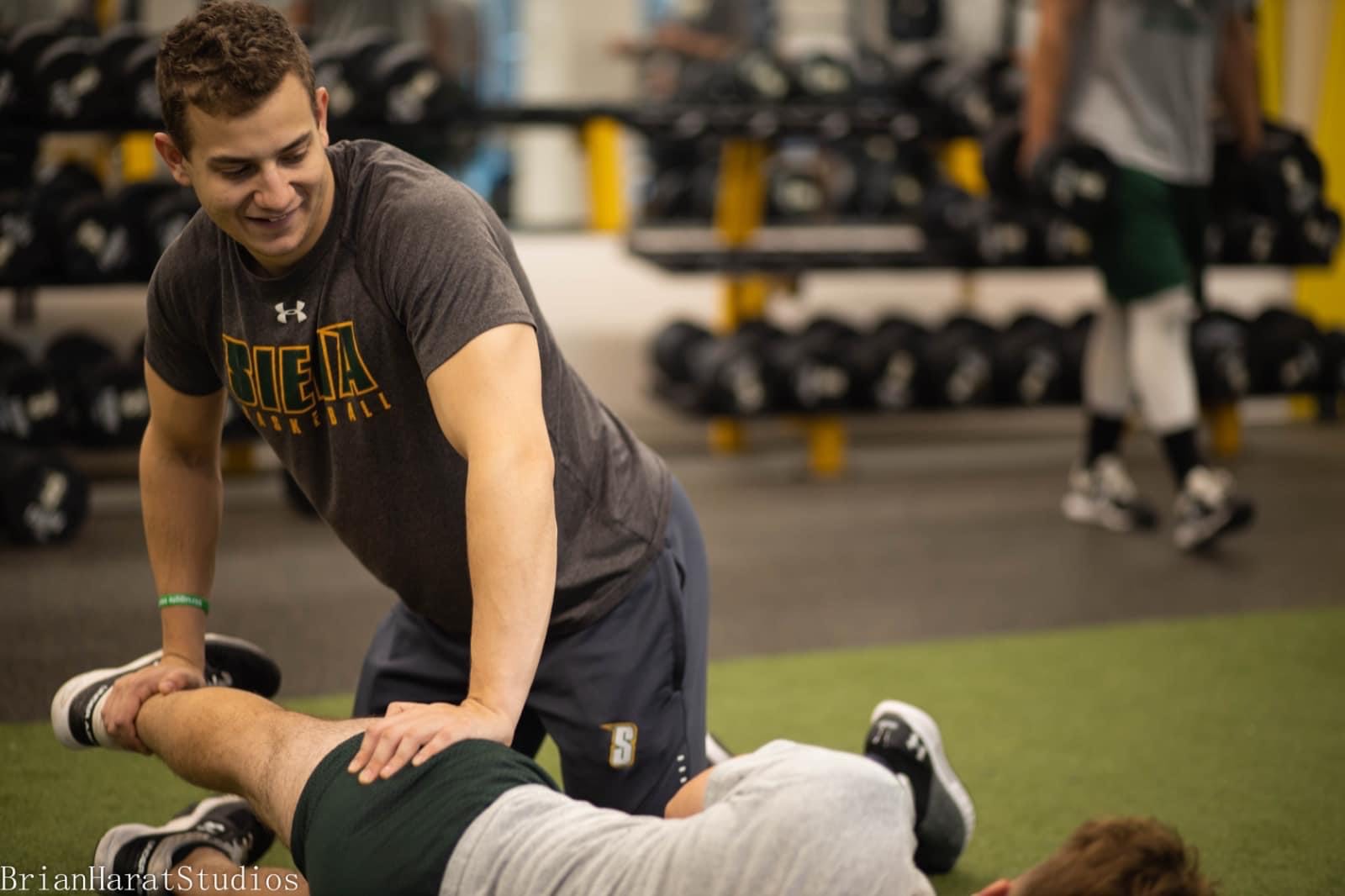Accessing university resources
The content on this page was adapted from the IOCDF’s Anxiety in the Classroom website.
 You are more than an athlete. You are a student-athlete, and your school will likely have resources to help you with both parts of this identity. Each campus is going to be different when it comes to what services they are able to offer. You can find out what resources are available by visiting your school’s website, talking with a counselor, or going through your student life center/student-athlete resources.
You are more than an athlete. You are a student-athlete, and your school will likely have resources to help you with both parts of this identity. Each campus is going to be different when it comes to what services they are able to offer. You can find out what resources are available by visiting your school’s website, talking with a counselor, or going through your student life center/student-athlete resources.
Getting to know your Resident Assistant and/or Resident Director (if living on campus) is important, as they can help with campus living accommodations and stressors! In addition, get to know your academic advisor. They can help you manage course load and graduate in the shortest amount of time.
Some potential campus resources that you may be able to utilize as a student athlete are:
-
Disability services
Disability services will provide you with necessary and reasonable accommodations that are specific to your needs. You should work with your provider and family to help you through this process and gather any paperwork that may be asked from you. Accessing this service early or prior to a semester starting will ensure that you have what you need in order to thrive.
-
Counseling center services
Counseling center services will provide mental health counselors to assist students with referrals for nearby off-campus mental health providers, support groups, and related resources. This service may also offer students free counseling up to a certain number of sessions. However, you may encounter a waiting list, so do not wait to utilize this service. If you are ever in a crisis situation, do not wait — seek immediate help.
-
Peer support programs
Peer support programs are college-approved support groups led by college students to help support fellow students struggling with a mental health disorder. These groups may be organized independently through your campus or through a partnership with a mental health organization. If you find there is not a peer support group at your campus, you can ask your counseling center or student life center about how to start a group.
-
Crisis services
Crisis services could be offered through the counseling center and the on-campus police. Be familiar with your school policies and services by visiting your campus’s counseling center or student life center. Your campus may have a crisis intervention team with a direct number to access these resources quickly. If this is an emergency or you are ever feeling suicidal or unsafe please go to your local emergency room, call 911, or call the suicide prevention hotline at 988.
-
Student athlete services
Many schools offer special services and/or support to their student-athletes. This can range from specialized health and mental health care to specific housing to academic support. Talk to your coach or athletic department leader to find out more about what is available to you!
Have a plan in place
Whether you are a current or future student-athlete, having a plan in place that nourishes your mental health needs will set you up for success. You can work with your mental health provider and/or family to help you establish this plan.
Things to consider when developing your plan:
-
Maintain your support system and build connections.
Keeping strong connections with those that have supported you through your journey could keep you feeling encouraged and motivated. However, it is important to build a support system in your new environment as well. Being in a new place gives you the opportunity to make new friends through your teammates, classmates, and housemates.
-
Keep up with your treatment plan.
Determine how you will continue your treatment, whether that is by staying with your current provider (maybe through telehealth options) or finding a provider in your new area. Use this search tool to help you! If you take medication, locate the nearest pharmacy where you can fill your prescription.
-
Utilize online tools and apps.
Mental health apps are becoming more and more common. Apps can provide accessible and affordable tools to help you manage OCD/anxiety and related disorders. Read more about mobile apps for OCD/anxiety management.
-
Be strategic when choosing which classes to take.
Try to include a class or two that is a little easier, or take less than a full course load to avoid being overwhelmed. Keep in mind, however, that many schools will require you to take a certain amount of classes to be considered a full-time student-athlete. Whether you are registered as a full-time or part-time student can affect the amount of financial aid you receive and/or your athletic scholarship package. You may want to ask your academic advisor to find out how many credits your college expects students to take per semester.
-
Ask about priority registration.
Some schools will let student-athletes and/or students with disabilities register early to make sure they can get the classes that will best work for them.
-
Develop a crisis plan.
Don’t wait for a crisis to figure out how to handle it. Save the appropriate emergency contact numbers in your phone, be aware of nearby hospitals, and know your treatment preferences.
-
Connect with the OCD/anxiety community.
The IOCDF offers a wide range of resources for you to get connected with others with similar struggles. You can find support groups, online virtual events, conferences, advocacy opportunities, and an online OCD/anxiety community.
-
Prioritize self-care.
Find ways you will practice self-care outside of your studies and sports. Consider some things that you enjoy — reading a book, listening to music, seeing a movie, etc. By establishing these habits, self-care can help you cope with stress and ensure overall wellness as a busy student-athlete.
What other resources are available to me?
Colleges often offer free services to help their students deal with their academics. Your school might, for example, have a writing center where other students can help you with your papers. Or, they might be able to connect you with tutors if you’re struggling in class. Your school may also give you advice on how to better manage your time and develop study skills.
Professors are another excellent resource that can help you succeed. If you are having problems with your course material, they can help put you on the right track. Professors are often willing to negotiate things such as assignment due dates with you, especially if they know you have a disability.
Finally, make sure you get the most out of your academic advisor. Your academic advisor is there to help you, and you should touch base with them often. If you have concerns about your schedule, are struggling with your coursework, or simply feel overwhelmed, contact your advisor. If your advisor cannot help you directly, they can still probably point you in the right direction.



